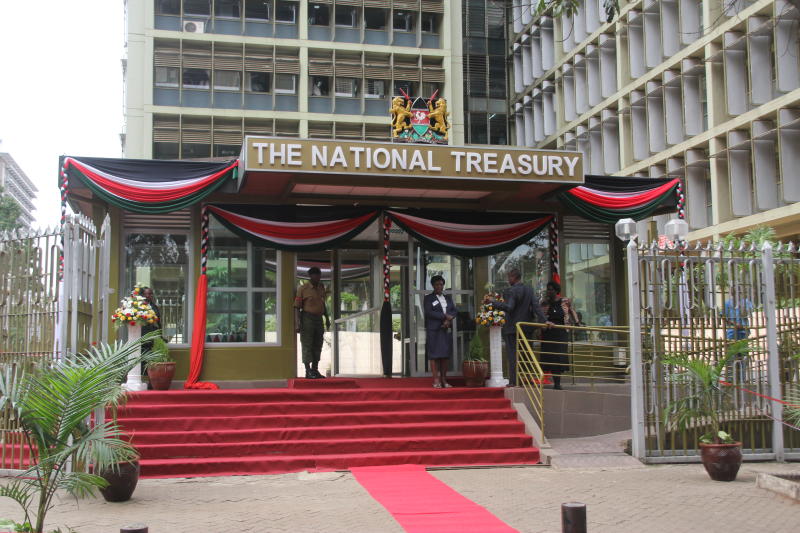
April did not look like a bad month for the Kenya Revenue Authority (KRA) after it collected Sh120 billion from taxpayers.
This was the monthly average the authority had managed in the previous period when Covid-19 was not ravaging the economy.
The tax collection was revealed in the latest Statement of Actual Revenue and Net Exchequer Issues from the Treasury for the month of April.
Muted activity
With companies paying their instalments and taxes for 2019 last month, the government raised its total tax collected to Sh1.24 trillion, an increase from Sh1.12 trillion that it managed in March.
It came as a surprise as most economic activities have been muted by the pandemic following the government’s stringent containment measures aimed at curbing the spread of Covid-19.
Following the outbreak of the coronavirus disease, the government revised its tax collection target for the financial year ending June to Sh1.5 trillion from an original target of Sh1.8 trillion.
This came even as President Uhuru Kenyatta offered tax relief measures aimed at cushioning households and firms against the economic shock of the pandemic.
Some of the tax reliefs, such as the reduction of value added tax from 16 per cent to 14 per cent, took effect on April 1, with the Treasury estimated to forego Sh172 billion as a result of the cut.
Other tax measures, including waiving of Pay As You Earn (PAYE) for those earning Sh24,000 and below (other employees, and corporations, saw their income tax reduced from 30 per cent to 25 per cent), came into effect towards the end of April when President Kenyatta signed the Finance (Amendment) Bill, 2020 into law.
According to Samuel Mwaura, a director in charge of tax at audit firm Grant Thornton, the increase in tax collection was expected.
“April is when all companies whose period year ends in December have to pay their tax instalments,” he said.
The other good months for KRA are June, September and December.
No pressure
Stay informed. Subscribe to our newsletter
Mr Mwaura said this explains why Kenya, unlike other countries, did not cave in to pressure from firms to change the timelines for tax payment when the pandemic erupted.
Other countries, he said, offered such incentives where tax payments were delayed.
“Because they were relying on all the instalments and PAYE on directors’ fees, taxes for the year ending 2019 were all becoming payable in April,” said Mr Mwaura, adding that a dip in tax collection is expected beginning May.
“Going forward, things will start going down. Even after that PAYE, which is a very standard tax, the effect will start being felt in May.”
 The Standard Group Plc is a
multi-media organization with investments in media platforms spanning newspaper
print operations, television, radio broadcasting, digital and online services. The
Standard Group is recognized as a leading multi-media house in Kenya with a key
influence in matters of national and international interest.
The Standard Group Plc is a
multi-media organization with investments in media platforms spanning newspaper
print operations, television, radio broadcasting, digital and online services. The
Standard Group is recognized as a leading multi-media house in Kenya with a key
influence in matters of national and international interest.
 The Standard Group Plc is a
multi-media organization with investments in media platforms spanning newspaper
print operations, television, radio broadcasting, digital and online services. The
Standard Group is recognized as a leading multi-media house in Kenya with a key
influence in matters of national and international interest.
The Standard Group Plc is a
multi-media organization with investments in media platforms spanning newspaper
print operations, television, radio broadcasting, digital and online services. The
Standard Group is recognized as a leading multi-media house in Kenya with a key
influence in matters of national and international interest.









